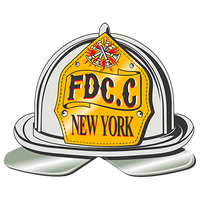Firefighter Finances
John MIt's the greatest job in the world, but no one will ever accuse a firefighter of getting rich on the taxpayers' dime. Sure, once you get a few years on the job you'll make a good salary, but it's important to plan for your future at all stages of your career. Time in the market is the best thing you can do for your money; so start now while you're young! There is a reason many municipalities offer early retirement incentives to firefighters; this job can really beat you up!
Being a Long Island based company, we are well aware of the financial struggles faced by many folks. Long Island is a wonderful place to live, but the problem is that just shy of 3 Million other people seem to agree with us, creating competition and driving up the costs of real estate and everything else.
Many firefighters are aware that they have a pension, but alarmingly fewer are aware of other great benefits offered by many municipalities. You may have heard of a 401(k); many municipalities offer these or the similar 403(b) plan. These accounts allow you to set aside PRE-TAX money into an account that will grow until you are ready to retire; then when you retire, you can withdraw that money at a hopefully lower tax rate since you'll be living off a pension in the 30-60% final salary range when you reach retirement age (59 and 1/2 years), rather than paying the full tax amount on your 100% salary now.
Many municipalities also offer 457 plans, which work similarly, but allow you to defer even more taxes until a more favorable date. The cool thing about a 457 plan is that you can withdraw the money penalty-free upon termination rather than at retirement age (59 and 1/2 years). This is a great feature for firefighters as many are able to retire before the age of 60, in some cases well before. Of course, if you don't need the money you are free to let it grow as well.
The current annual contribution limit to most retirement plans is $19,500 per year. This is a lot of money to contribute every year, and will really set you up well for retirement if you're able to. However, we realize not everyone is able to do this. If you are able to set aside $10,000 a year, you can retire with a nice nest egg in addition to your pension!
$10,000 invested annually, with an average return of 6% yearly, would result in a balance of $838,016.77 after 30 years of investing. If withdrawn at a conservative 3% per year, that would give you about $25,000 extra income every year of your retirement, without decreasing your principal balance at all!
Are you a workaholic or otherwise see yourself earning more money in "retirement" than during your career as a firefighter? A ROTH option may be good to consider if your municipality offers one. You also can open an Individual Retirement Account (IRA) through many brokerages and retirement funds. The ROTH lets you put in money that you've already paid taxes on (up to $5500 per year), and then you never pay taxes on it ever again so long as you follow the rules (There is a penalty for withdrawing EARNINGS before 59 and 1/2). However, one cool feature of a ROTH account is that it can act as an emergency fund; any money you contribute, you are free to withdraw without penalty (you still take a penalty and pay taxes on any balance that has accrued). This is a great feature, though we suggest avoiding pulling money out of a ROTH account unless absolutely necessary.
Perhaps the best thing you can do for your finances is to consider what you actually need. It can be tempting to buy a $50,000 dollar truck or sports car, but will it serve you any better than a 10 year old vehicle for a fraction of the price? Likewise, do you really need to rent an apartment in a trendy neighborhood or could you perhaps find roommates in a commutable but less trendy area? 24s can be grueling, but there's no denying that it's one of the better commutes out there. Would you rather make your commute 2-3 times per week or 5 times per week?
For our volunteers, check if your department offers a length of service award program (LOSAP). If your department does, make sure you remain eligible for it. Also, many volunteer departments offer property tax adjustments. Make sure you are eligible and take advantage of those. Remember, you're a volunteer! Your time and experience is valuable to your community! While it is noble to volunteer your hard earned money as well, never feel as though you must! Your department should reimburse you for many of the costs associated with travel for training.
Please remember that there is inherent risk in investing. Chances are the market will go up, but there is always the possibility that you retire during a down market. If this is the case, your prudent financial decisions and your firefighter's pension should help you weather the bear market until your investments can recover.
Consider the following median retirement assets by age:
- Americans in their 20s: $16,000
- Americans in their 30s: $45,000
- Americans in their 40s: $63,000
- Americans in their 50s: $117,000
- Americans in their 60s: $172,000
Chances are you will be doing better than the average American if you invest regularly. However, be mindful that the average American is woefully under-prepared for retirement. As a firefighter, you're giving a lot to your community. It is a difficult and often stressful job. Be sure to take care of yourself financially so that you can reap the rewards of your sacrifice and enjoy retirement!
